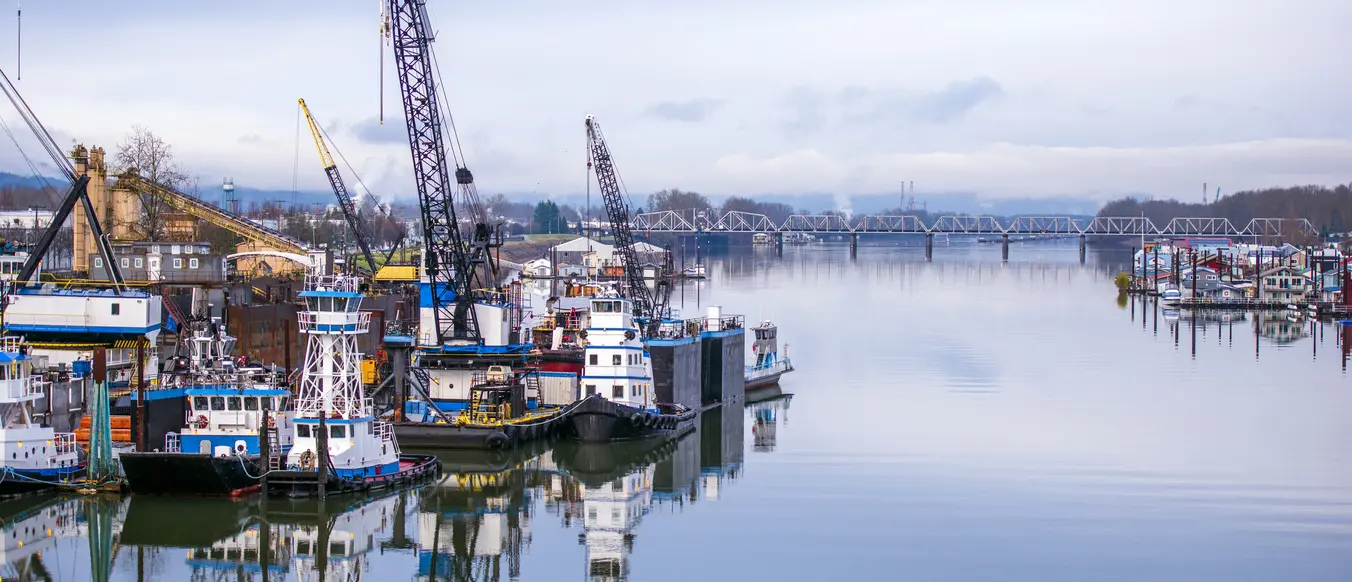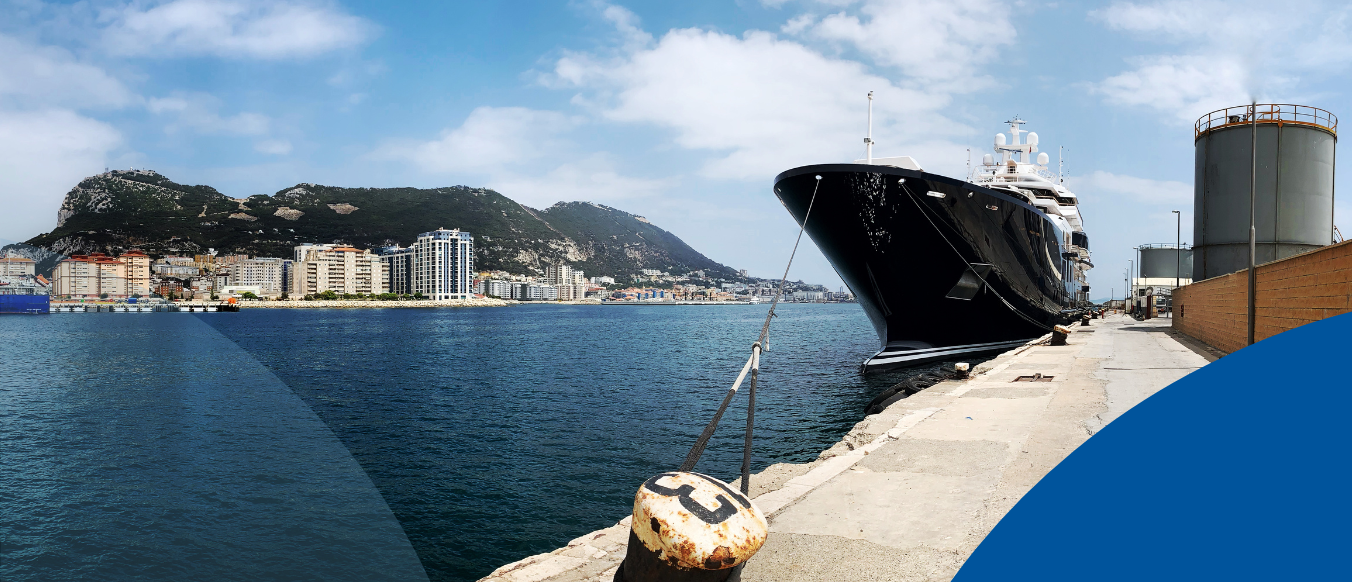Spotlight: Bunkering is back in Portland and the Columbia River

The Columbia River isn’t just a scenic waterway winding through the Pacific Northwest, it’s a vital artery for U.S. maritime trade. From grain exports to car carriers and product tankers, vessels of all kinds make their way upriver to Portland, Oregon, a port whose strategic location has long been critical for shipping operations. But for several years, one essential service was missing: marine fuel supply at scale. That changed when World Fuel reactivated bunkering operations in the region, helping to restore Portland’s role as a full-service port.
Here, we put the spotlight on how World Fuel’s dedicated infrastructure, partnerships, and operational precision are bringing resilience and flexibility back to the region's maritime services infrastructure. The result is value for customers, as well as for the broader Columbia River maritime community.
The Columbia River as a trade corridor
Portland sits 100 miles inland along the Columbia River, yet it remains a bustling port with a wide variety of commercial vessel traffic. The river serves as a vital gateway for international trade, particularly between the Pacific Northwest and Asia. Grain vessels, bulk timber carriers, container ships, product tankers, and car carriers all transit its channels.
“From Astoria to Portland, and every berth and anchorage in between, is covered,” says Jared Kuebler, Marine Trader at World Fuel. “We now support shipping activities along the Columbia River ports with the availability of fuel oil bunkers.”
This geographical span is significant. The Columbia is a working river, but one that was, until recently, missing a key piece of infrastructure—a dedicated marine fuel supply service capable of meeting the complex needs of oceangoing vessels. The lack of such a service forced inconvenient and expensive deviations for ship operators, especially those heading back to Asia across the often turbulent Gulf of Alaska.
World Fuel’s infrastructure in Portland
At the core of World Fuel’s Columbia River service is a purpose-built, highly controlled supply chain. The company operates its own fuel oil terminal in Portland, with on-site storage for high sulfur, low sulfur and marine gasoil grades, and marine gas oil (MGO). The site includes a dedicated dock and tank farm, used exclusively by World Fuel to maintain full quality assurance from shore to ship.
“We have a time-chartered barge operating exclusively for us on the river,” Jared explains. “It’s a clean, isolated supply chain. No intermingling, no shared lines. It’s our dock, our tankage, our team.”
World Fuel currently supplies 3.5%, 0.5%, and 0.1% fuels. The company is also preparing to offer renewable fuel options in the future, aligning with long-term customer sustainability goals.
Re-establishing bunkering in the region
For about five years, there was no barge capable of supplying fuel oil products available on the Columbia River. This meant vessels calling at the ports along the Columbia River, such as Astoria, Portland, Vancouver, and Longview, had no access to fuel oil grades. The result was that ships (often grain vessels outbound to Asia) had to sail a full day north to Port Angeles just to refuel.
“That kind of deviation is a logistical headache,” says Jared. “You’re burning fuel the whole way, spending more time and money, and complicating voyage planning.”
World Fuel saw an opportunity to change that. Since establishing its Portland operation, the company has restored bunker availability and simplified supply planning for customers. The move was driven by clear demand from shipowners and operators who needed a local solution and who now benefit from the flexibility and cost savings of fueling on the river.
Meeting tight schedules with dedicated teams
The Columbia River presents unique scheduling challenges. Vessels arriving in Astoria often require inspections or hold cleaning before proceeding to berth in Portland. That makes timing critical.
“Our schedulers and operations staff are local and dedicated to this region,” Jared notes. “We coordinate closely with agents to make sure we’re meeting vessels at the right location, at the right time, without delay.”
Behind the scenes, a mix of on-the-ground experience and centralized coordination supports the operation. While trading is managed from New Jersey, operations benefit from decades of combined expertise between Jared Kuebler and his team, who handle West Coast fuel logistics across multiple terminals.
Building strong local partnerships
The reliability of the Portland service is also supported by strong local partnerships. World Fuel works closely with agents along the Columbia River and is a member of the local Merchant Exchange, demonstrating its integration with the regional maritime community.
“We’re also proud to work with Centerline Logistics as our barge operator,” says Kuebler. “They’re a mainstay on the West Coast, safe, efficient, and deeply experienced. They’ve been doing this for decades.”
These partnerships extend World Fuel’s capability beyond its own infrastructure and reinforce its ability to serve a complex and busy river system where timing, safety, and quality all converge.
Supporting long-term voyage planning
For shipowners looking to simplify voyage planning or lock in fuel prices for future calls, World Fuel offers fixed-supply options and financial tools to reduce exposure to market volatility. This is particularly valuable in today’s environment, where global fuel costs and operational planning windows fluctuate constantly.
“We can work with customers to plan a year ahead if needed,” says Jared. “It’s about giving them certainty and options. When you’re facing a three-week crossing to Asia, that flexibility matters.”
A strategic port with renewed strength
What makes World Fuel’s Portland operation stand out is not just the tanks, the barge, or the fuels. It is the fact that all of it was put in place in response to customer needs. With no refineries in Oregon and no other marine fuel oil suppliers on the Columbia, this was a service gap that impacted both local commerce and global shipping routes that relied on these ports along the river.
“We’re proud to have brought this service back,” says Jared. “It’s good for Portland, good for the Columbia River, and good for the customers we serve.”
For more information about World Fuel Services in Portland, Oregon and to enquire about bunkering solutions, contact us today.


